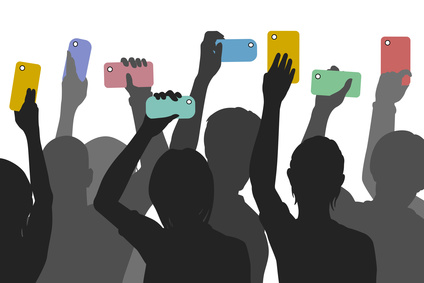As Hivos, we fully believe that freedom of expression and the media is a basic requirement for citizens to stay informed, express an opinion and become civically involved in society. Across the globe, the internet has been growing as a medium of communication, facilitating freedom of expression and economic development. In countries where the internet is free, enterprising people have come up with innovations that have and continue to produce great economic returns, providing not only jobs but new ways of conducting human affairs.
In many countries, Internet Freedom is not enshrined in law and can come under threat from governmental legal and political action. By simply exercising their right to free speech, bloggers, activists and human rights defenders often face arrest, torture, imprisonment, and sometimes even the death penalty in some countries.
In Zimbabwe, internet growth has been phenomenal. While some parts of the country particularly rural areas where the majority of the population lives are yet to be connected. Indeed, the growing digital divide is a major issue of concern, and efforts have to be made to equalise access to the internet because the benefits far outweigh lack of access. Thankfully everything points to greater penetration of the internet in the coming years.
The ultimate question that we are all here gathered to ask today is what kind of internet do we want? As Zimbabwe’s internet penetration grows, will the internet be open, facilitating new ways for people to express themselves as well as do business.
With an open Internet, there is a steady stream of ideas that flows to and from users around the world. Sharing ideas freely without restrictions bolsters innovation and development.
Take social media for example, social networks today not only promote the emergence of new ideas and discussions on the respective platforms, but also lead to many income-generating businesses in the remotest parts of the world.
Another important aspect of the Internet is its inherent capacity to allow all people to speak out and express an opinion on matters that they feel strongly about. The fundamental right of free speech promotes dialogue and helps address societal problems in a civil and constructive manner.
As Hivos, we feel that it is crucial that government, the private sector, civil society and citizens start engaging in frank and open discussion on the long-term future of internet. Hivos believes it is essential to for citizens to continue putting pressure on government and the private sector to ensure that human rights online are not abused.
In order to harness ICT’s exciting potential, Hivos strives towards consolidating and safeguarding Internet Freedom through improvements in three key areas:
- Prevention& Protection (digital safety and security for activists)
- Policy & Privacy (internet governance policy and privacy protection)
- Pressure (against online human rights abuses)
These areas are of course not always neatly separated, and some of our activities focus on more than one.
First, our activities are geared toward raising activists’ awareness of and skills in preventing and dealing with (online) security threats so they can enjoy full freedom of expression online safely. Hivos calls this “smart activism”.
Second, Hivos and its partners lobby for proper and inclusive internet governance regulation, and support “Internet Governance roundtables” to assist in this effort.
Our partners set out cutting edge proposals for internet governance worldwide and offer country-specific action plans for improvement. Furthermore, preserving citizens’ privacy, and protecting them from government and private sector intrusion, is of increasing importance.
Online freedom and the safety of its guardians are crucial both in combating repression, as well as in closely monitoring the various phases of democracies.
The UN’s Universal Declaration of Human Rights has upheld freedom of expression as a human right in Article 19, which states that everyone “has the right to freedom of opinion and expression”. Hence, ensuring an open Internet is one way to respect freedom of expression and promote democratic participation.
While no freedom can be totally unlimited, it is important to recognize that interference in the way the Internet functions by setting up firewalls, practicing surveillance, or implementing other technical limitations without taking proper due processes in a democratic fashion would be counter-productive and do more harm than good to society
With the Internet still growing as the next one billion users go online, it is more important than ever to ensure that whoever joins the Internet enjoys the power that its openness brings. This openness that manifests itself in the Internet’s open architecture and design, must also be strongly evident in accessibility and reach.




